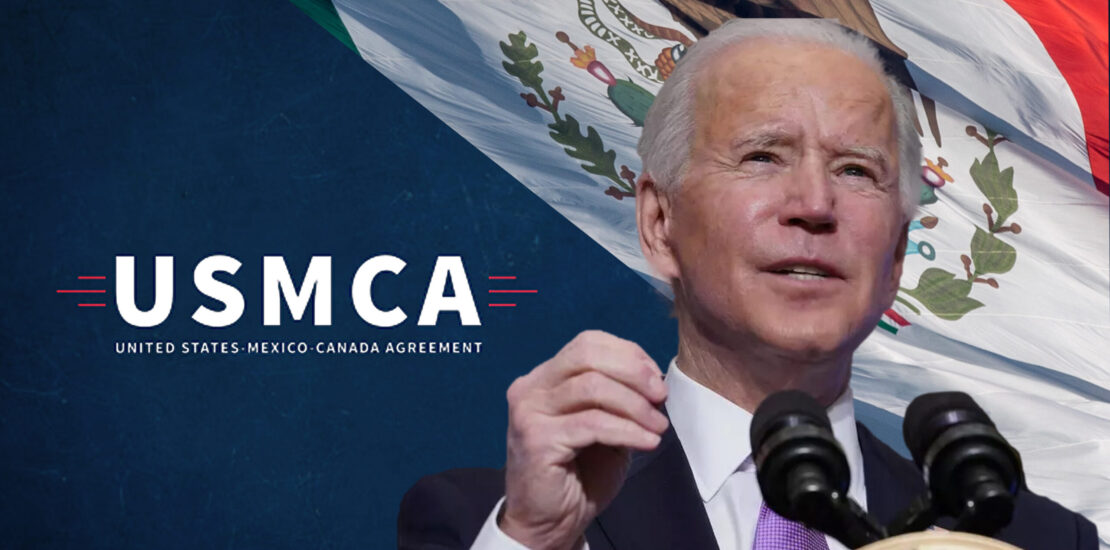- 2 febrero, 2021
- Posted by: Armando Nuricumbo
- Categoría: Estados Unidos, Global, México

With the end of the Trump administration in the United States, the protectionist policies and the slogan of “Make America Great Again” have come to an end.
With the new Administration, the challenges left by the previous administration will begin to be tackled, but the need to re-open the economy multilaterally is also recognized. One of the business priorities will be to focus on the economies of historical allies, particularly Mexico, Canada and Europe.
The fundamental issues for Mexico with the administration of President Biden will be related to compliance with USMCA trade, labor and environmental provisions. The degree of flexibility that his Administration will show regarding certain USMCA provisions remains to be seen. It will also be necessary to leave on the table whether during the four years of the Administration there can be reforms to the treaty itself, derived from the change of ideology in the United States.
In environmental matters, the government of Mexico should consider reversing its current energy policy in favor of more renewable sources. It will be interesting to see if the Joe Biden Administration is committed to actively supporting US companies affected by electricity regulatory changes in Mexico.
According to a recent BBVA Mexico report, it is considered that one of the most important points of Biden’s foreign policy “will contemplate a strengthening in collaboration with countries of the American continent in matters of climate change mitigation and renewable energies” .
One of the most important issues for Mexico will be compliance with the rules of origin in the automotive industry. As a result of the pandemic, according to the Mexican Association of the Automotive Industry, 1,467,644 vehicles were produced in the period between January-July 2020, which represented a reduction of 35.5% in relation to the units produced in the same period of 2019.
The main differences between NAFTA and USMCA on automotive rules include a gradual increase in regional value content, updated rules for high-tech vehicles, and new rules on labor value content.
Another important issue derived from the new economic agenda of the United States will be the new labor provisions contained in the USMCA. Among the most relevant points are the new labor mechanism of rapid response, through a panel made up of the three countries, to determine if workers’ labor rights are undermined. It remains to be seen if we may have a case of a government accusing any of its counterparts of breaking or not compliying with the labor provisions of the agreement.
The new provisions could also generate a significant wave of private lawsuits against companies that are operating in Mexico and that could be considered to be engaging in unfair labor rights practices under the new perspective of the USMCA. The approach that the administration of President Joe Biden takes with respect to punishing non-compliance with the provisions of the USMCA will undoubtedly be a matter of pressure for the administration of President López Obrador.
In conclusion, many of the issues that will occupy the bilateral trade agenda will depend, first, on the progress achieved in the resolution of domestic problems in the United States, such as the management of the pandemic, the reactivation of the national economy and the immigration issue. Subsequently, it will depend on the activism that the Joe Biden administration takes with its USMCA commercial partners and the focus that is given towards compliance with the provisions of the treaty. It is in the best interest of all partners to generate a strong economic recovery in North America, but political pressures at home may become a negative factor in these efforts.
